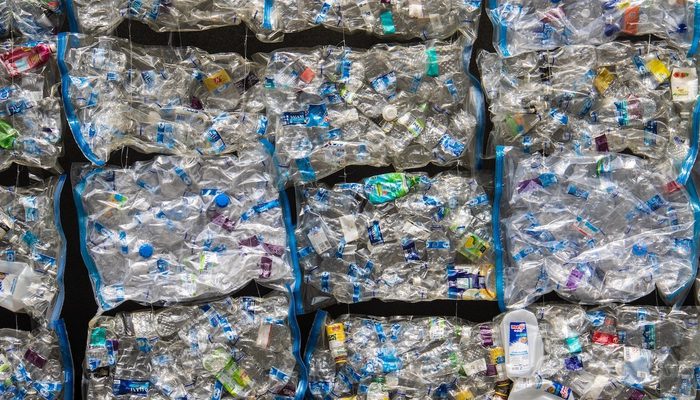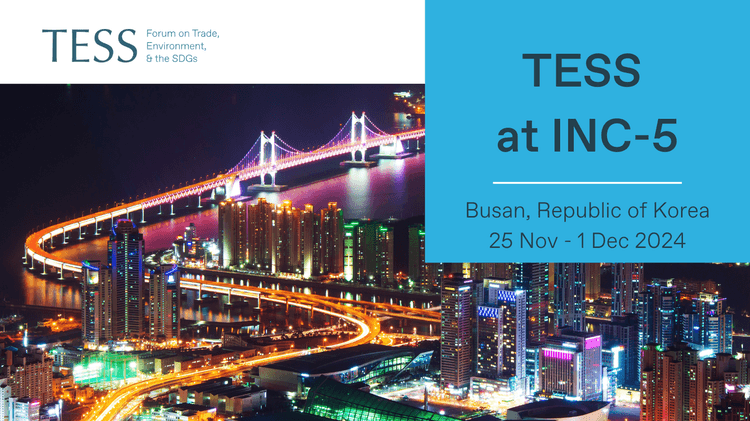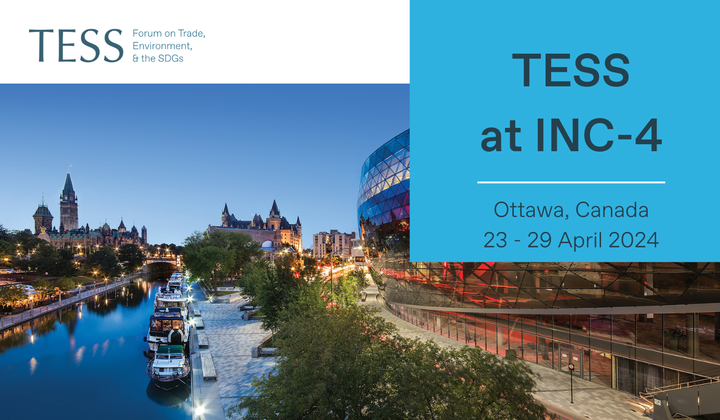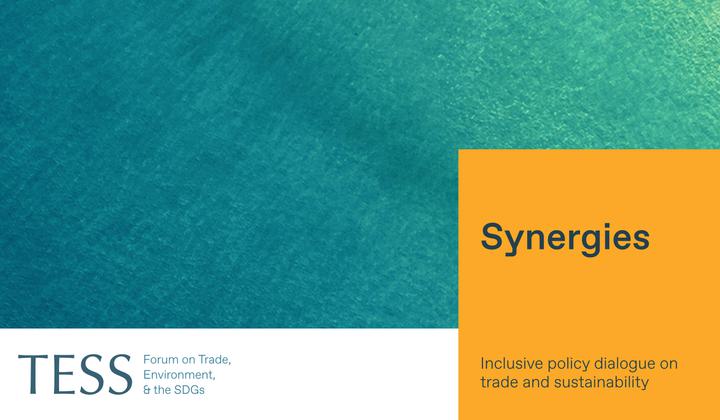As governments and stakeholders gather in Busan from 25 November to 1 December 2024 for the fifth session of negotiations on a global treaty on plastic pollution, TESS will be on the ground to support an ambitious and effective treaty that strengthens the international cooperation needed to tackle the plastics crisis.
At the final scheduled intergovernmental negotiating committee (INC-5) to develop an international legally binding instrument on plastic pollution, including in the marine environment, time is of the essence as governments seek to reach convergence and agree to a treaty text.
In the lead-up to INC-5, the Chair of the INC circulated a non-paper, which he has proposed as the basis for negotiations. The non-paper suggests draft text on a range of issues under negotiation, drawing on the compilation draft text discussed at INC-4, and outlines elements to guide negotiations on issues where less convergence has emerged to date.
At INC-5, TESS will be focused on supporting efforts to build convergence on several of the most critical but challenging substantive issues for negotiation, including obligations related to problematic plastic products, chemicals of concern and product design, supply and production of primary polymers, and financing and resource mobilization. We will also be working to support operationalization of the protection of human health from the adverse impacts of plastic pollution as a core objective for the treaty alongside the protection of the environment, while continuing our ongoing work to foster shared understanding and cooperation on the role of trade-related measures in the treaty.
Alongside, TESS will continue at INC-5 to actively support the work of the High Ambition Coalition to End Plastic Pollution (HAC) as part of its Secretariat function. You can read the HAC Member States Joint Ministerial Statement for INC-5.
To engage with TESS at INC-5, we encourage you to contact Olivia Carolina Bonner. For the HAC, please contact Erlend Haugen, coordinator of the HAC Secretariat, or Nils Simon, leading the TESS team for the HAC on the ground.
You can access a live webcast of the Plenary of the official negotiations from the INC-5 website. Written statements and official documents are also available. You can also follow ENB coverage of INC-5.
Join us at INC-5!
Events
Finance Day Before INC-5
23 November 2024 – 07:45-13h15 – Park Hyatt Hotel, Busan
Ahead of INC-5, the Financing Coordination Group (comprising The Circulate Initiative, UNEP FI, World Bank Group, OECD, and World Economic Forum), with CDP and the University of Portsmouth, are hosting a Finance Day to discuss the state of play on financing options for the future plastics treaty and pathways for implementation. Convening stakeholders from across government, corporate, financial institutions, and academia, the Finance Day aims to share country-level insights on mobilizing financing to enable a circular plastics economy, promote alignment among diverse financing programmes and initiatives emerging in the plastics space, ensure financing maximizes synergies and impact, and explore learnings from and interoperability with other multilateral frameworks to build holistic approaches to addressing the triple planetary crisis. TESS will be participating in the event.
Trade Implications of a New Global Plastics Treaty
23 November 2024 – 13:45-17h30 – Park Hyatt Hotel, Busan
Hosted by UN Trade and Development and the World Economic Forum, with the collaboration of TESS, The PEW Charitable Trusts, and IISD, this informal side event will gather negotiators, the private sector, and civil society leaders to discuss the role of trade policies in the instrument and review opportunities for trade and trade-related measures to support and complement proposed treaty obligations.
Related TESS Publications
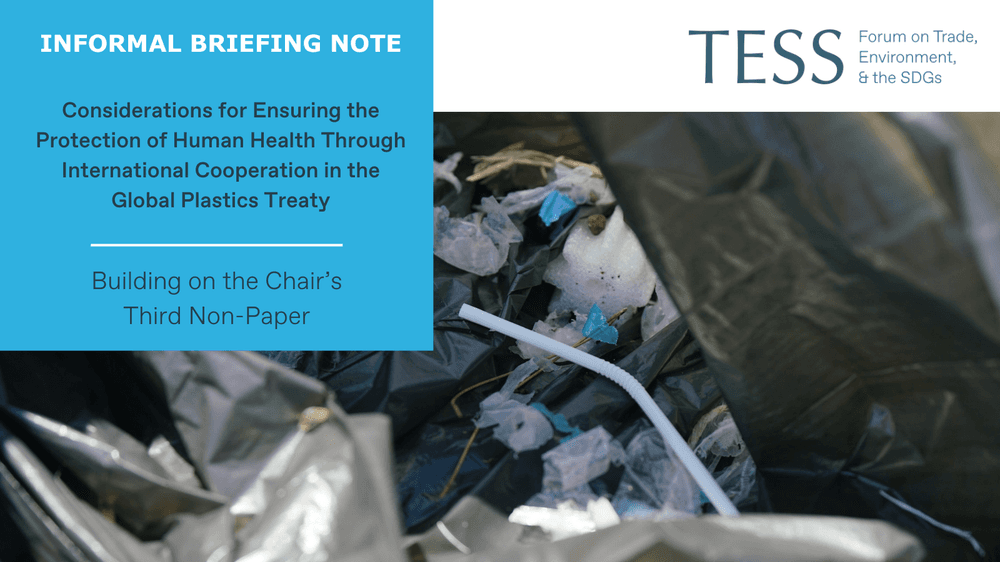
Considerations for Ensuring the Protection of Human Health Through International Cooperation in the Global Plastics Treaty: Building on the Chair’s Third Non-Paper
As the process to develop the legally binding instrument on plastic pollution has advanced, there has been growing convergence among a diversity of governments that the objectives of the instrument should include the protection of the environment and human health from the adverse impacts of plastic pollution. To achieve this, it is key that the instrument’s objective is operationalized throughout the treaty text and in all core treaty obligations. This TESS briefing note offers high level reflections on areas that members could consider for ensuring the protection of human health, building on the Chair’s third non-paper.
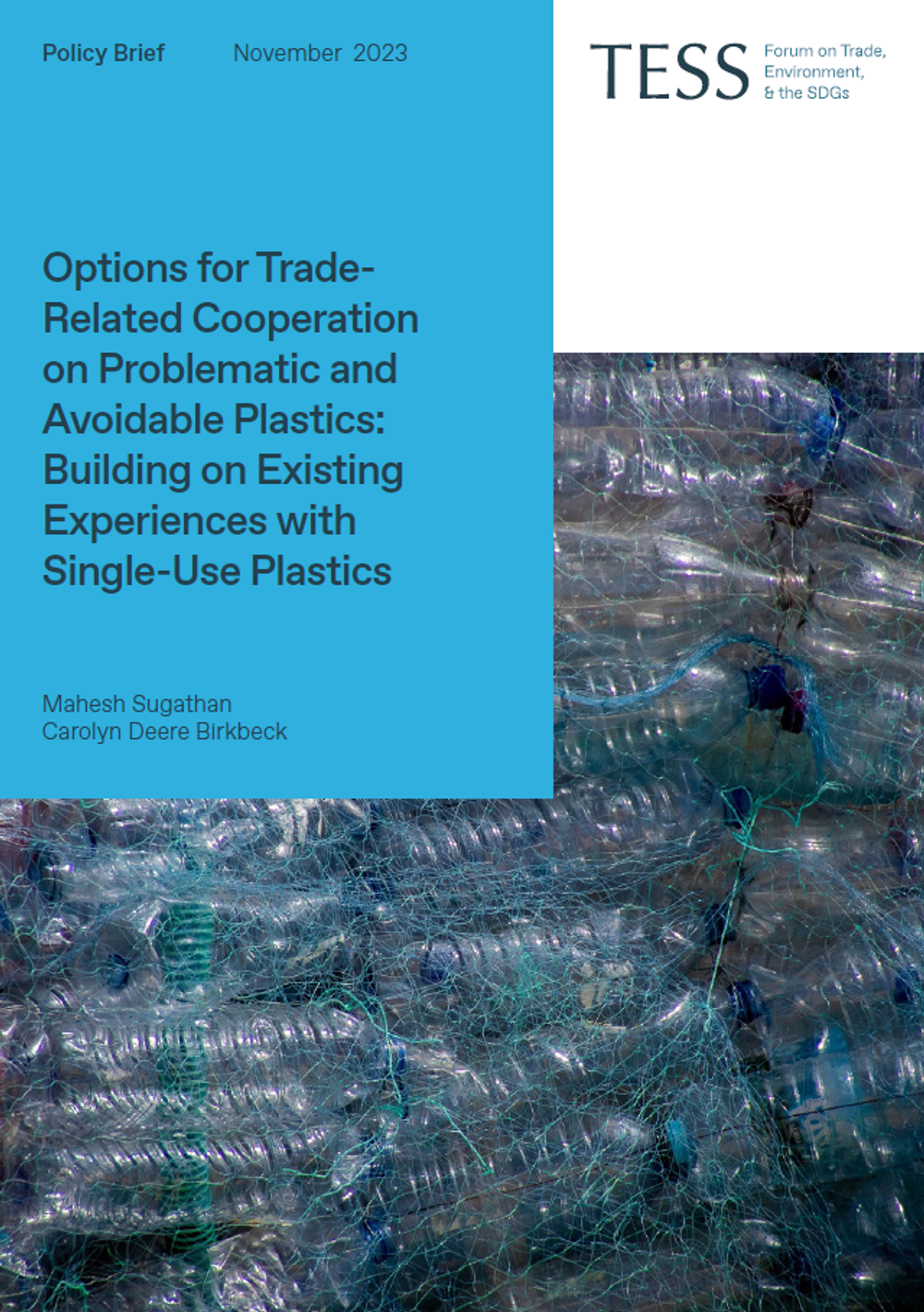
Options for Trade-Related Cooperation on Problematic and Avoidable Plastics: Building on Existing Experiences with Single-Use Plastics
Recognizing the need for immediate steps by countries to reduce or eliminate problematic, harmful, and avoidable plastics, this TESS policy brief aims to inform discussion on options for trade-related cooperation and action on single-use plastics that could be pursued through international processes, including through the plastics treaty negotiations and the WTO Dialogue on Plastic Pollution.
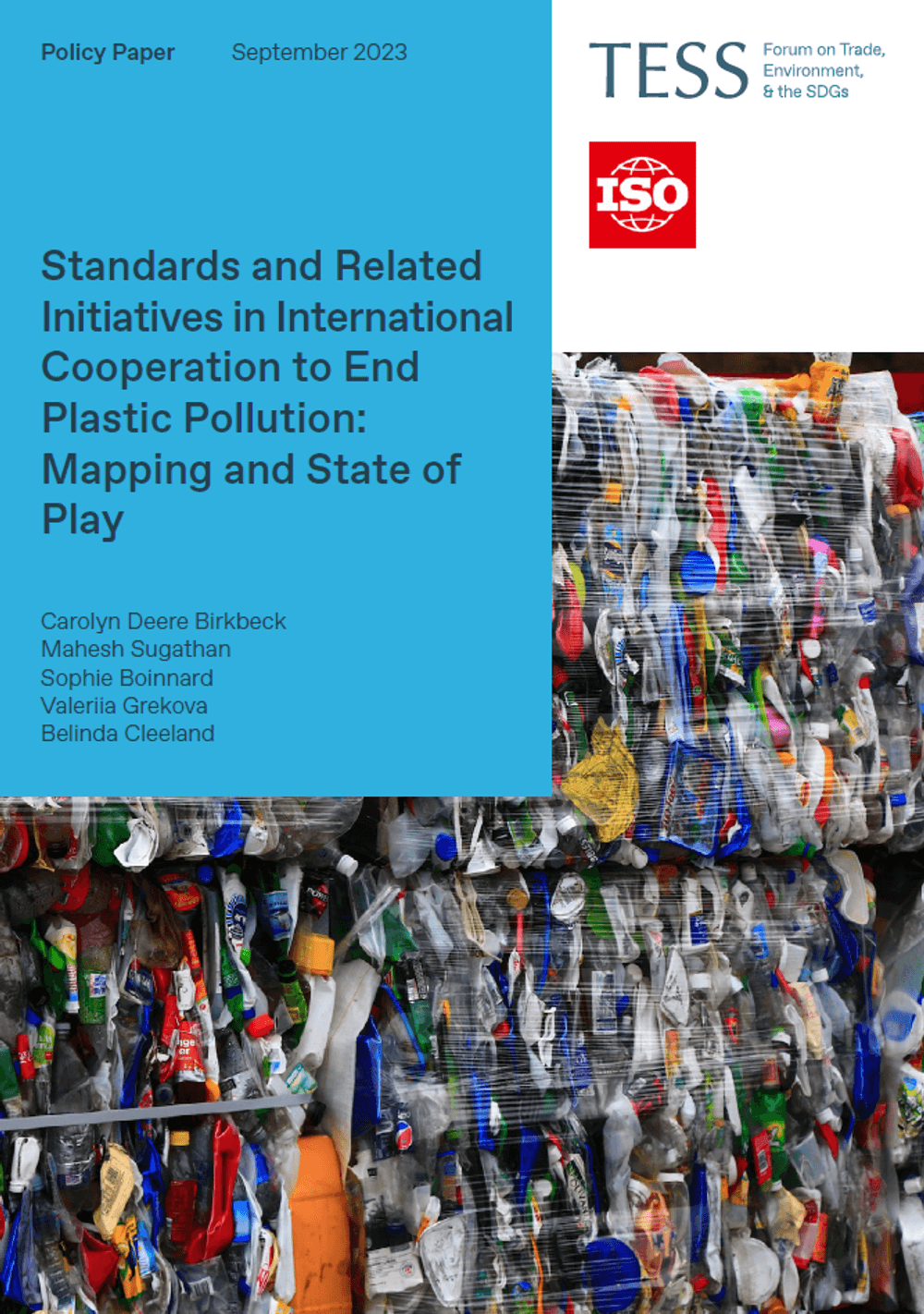
Standards and Related Initiatives in International Cooperation to End Plastic Pollution: Mapping and State of Play
The relevance of standards and standard-setting processes has arisen as a crosscutting issue in the plastic treaty negotiations. This TESS policy paper is intended to inform discussion on the role that international cooperation on standards can play in supporting global efforts to end plastic pollution.
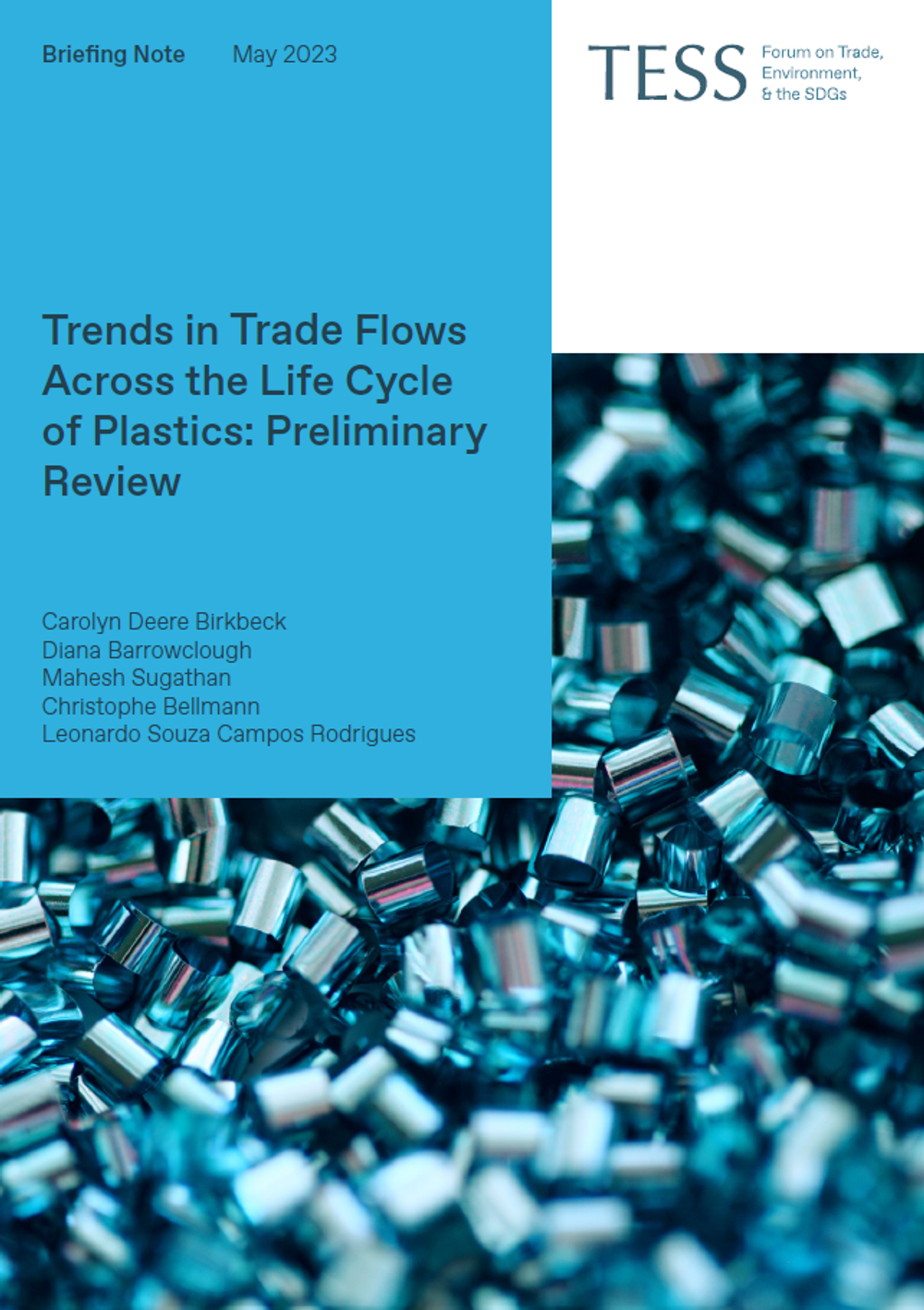
Trends in Trade Flows Across the Life Cycle of Plastics: Preliminary Review
In a range of international processes—the plastics treaty negotiations, the WTO Dialogue on Plastic Pollution, and Basel Convention’s deliberations on plastic waste trade—governments have noted the importance of improving the transparency of trade flows across the life cycle of plastics and of the material composition of products traded internationally. To inform these discussions, this TESS briefing note provides a review of trends in trade flows across the full life cycle of plastics, starting from trade in feedstocks, precursors, and chemical additives commonly used in plastics through to a range of intermediary and final plastic products, and plastic wastes.
Global Plastics Treaty Negotiations
This publication is part of our initiative
promoting international cooperation on trade to support the global
plastics treaty negotiations.
